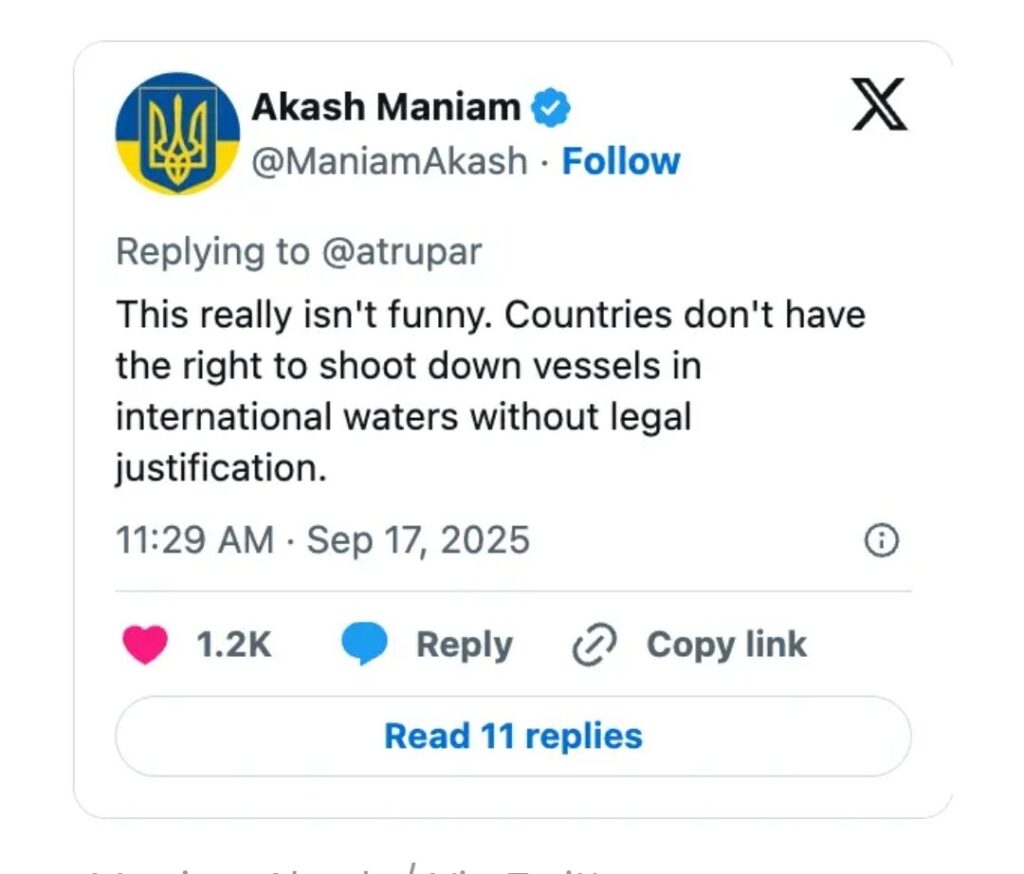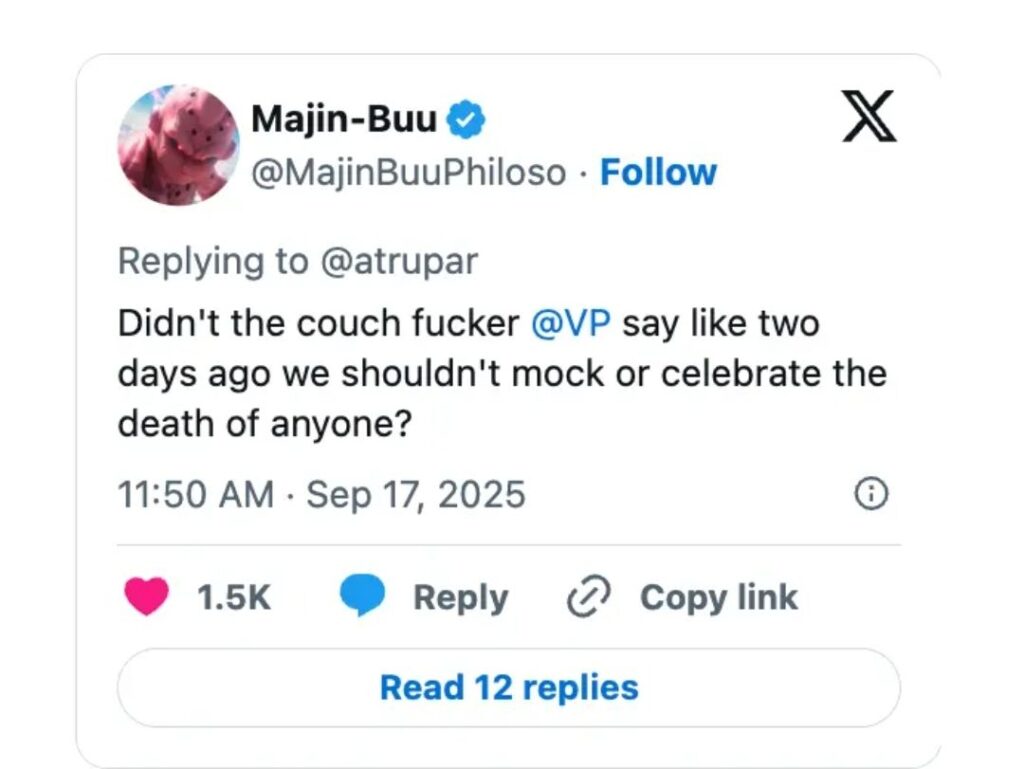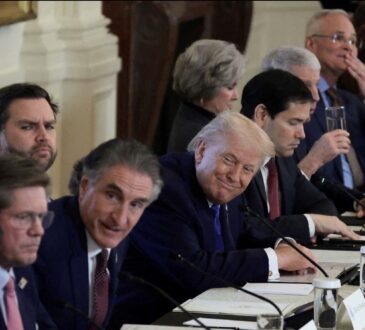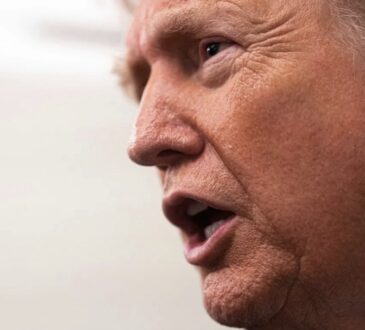
In the span of just two weeks, the Trump administration has launched two deadly strikes against boats in international waters, claiming they were tied to drug smuggling operations.
The first attack killed 11 people, and the second killed three. Almost immediately, serious questions were raised about the legitimacy of the targets.
Trump insisted that the vessels were connected to the Venezuelan criminal gang Tren de Aragua, but Venezuela’s interior minister publicly contradicted that claim, saying that none of the people who died in the first strike were gang members at all.
If true, that means the United States government killed more than a dozen civilians while claiming to fight organized crime.
The official line from Washington is that these operations fall under self-defense. Secretary of State Marco Rubio defended the strikes by arguing that anyone suspected of smuggling drugs represents “an immediate threat.” But legal experts and international law scholars quickly pushed back, pointing out that under international law, the concept of “imminent armed attack” is very specific.

You cannot simply equate drug smuggling—even if it were proven—to an immediate armed threat that justifies killing people in international waters. To do so is to stretch the idea of self-defense far beyond what the law allows.
Critics warn that if the United States can unilaterally decide that suspicion alone is enough to launch lethal strikes, it sets a precedent for other nations to do the same, undermining long-standing rules meant to prevent reckless killings at sea.
The controversy escalated even further after Vice President JD Vance weighed in during a rally in Howell, Michigan. Instead of addressing the legal or humanitarian concerns, Vance turned the deadly incidents into a punchline. He told the crowd that Secretary of Defense Pete Hegseth had bragged about how no drug boats had been seen lately.
Vance then joked that he knew why, saying, “Hell, I wouldn’t go fishing right now in that area of the world.” The line drew laughter from the audience, but the humor rested on the implication that fear of being bombed by the U.S. was enough to scare people off the water, whether they were smugglers or innocent fishermen.

The reaction was swift. Many people online blasted Vance’s comment as callous, saying he was mocking the deaths of possibly innocent people. Some pointed out that just days earlier, Vance had criticized others for joking about death, calling it morally wrong, only to turn around and do the same when it involved his own administration’s actions.

Social media users accused him of hypocrisy, with some sarcastically noting that the “joke” was essentially about murdering innocent civilians. Others said that his words revealed the deeper problem of the Trump administration’s approach to power: what they condemn in others, they freely indulge in themselves.
What makes this episode especially alarming is how it blends two troubling dynamics: the aggressive expansion of military force beyond legal limits, and the casual trivialization of human lives lost as a result. For decades, the United States has claimed to uphold international law, even when bending it to justify military actions.
But framing suspected smuggling as a justification for lethal force is an especially dangerous step, because it essentially redefines self-defense to mean whatever the administration wants it to mean. At the same time, having a sitting vice president turn that into a joke sends a message that the administration does not even feel the need to treat these deaths with seriousness or respect.
The political theater around the strikes and the jokes also reveals how desensitized the public is being encouraged to become. What might once have been considered a major international scandal—a U.S. military action killing civilians in international waters—has been downplayed into a rally laugh line.
Instead of facing accountability, the leadership uses the moment to project toughness, framing the killings as proof of America’s strength while dismissing legitimate concerns as weakness or disloyalty. That shift is not just rhetorical; it risks reshaping how military force is understood and justified, both domestically and abroad.
What makes the situation even more unsettling is how tightly it ties into the Trump administration’s broader approach to power. The same government that is openly cracking down on media outlets and free expression is also using military might in ways that disregard international law, and then joking about it afterward. Critics see this as part of a larger erosion of norms, where violence and censorship are both wielded casually by those in power.
Defenders may argue it is necessary toughness, but the long-term cost could be enormous. If the United States normalizes the idea that innocent people can be killed in international waters and that it can be laughed off at rallies, it weakens both America’s moral standing and the very international rules that are supposed to protect everyone.




